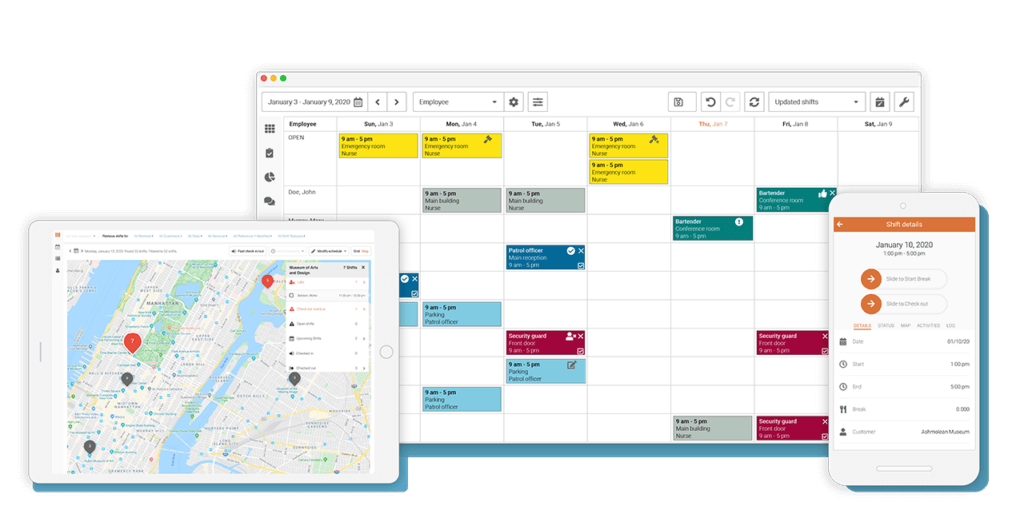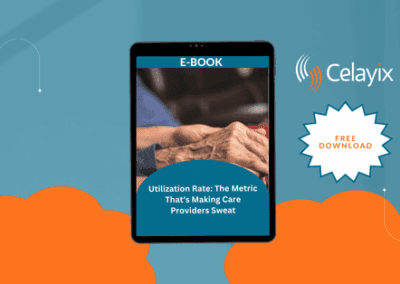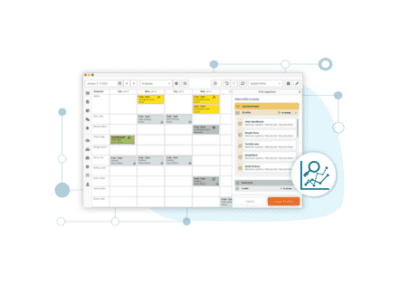Have you begun to see drained faces and tired eyes on your employees? Many managers demand that their employees work long days and be willing to donate their own personal time to the business’s cause. What they don’t realize is that this leaves them in a state of ‘work overload’. To the blind eye, overworked employees are seen as a business gaining more production at no additional cost. But this can often be to the detriment of the quality of work they produce. And more importantly, their health.
Let’s look at what work an overworked employee is.
What is an overworked employee?

An overworked employee is one who goes above and beyond the hours and duties assigned to them. Unmanageable workloads can lead to a decline in their mental and physical health. This can often lead to employees feeling dissatisfied and undervalued. On many occasions, this results in them quitting.
Although the signs of an overworked employee can sometimes be difficult to read, managers should make every effort to assess that their schedule and working conditions are reasonable. The hours that they work are an essential part of what determines them as ‘overworked’.
Employee working hours
Research has suggested that the U.S. is the most overworked nation in the world. As per OECD, Americans work an average of 1,767 in comparison to the OECD country average of 1,687. Many employees find themselves receiving very little paid vacation and holiday leave too. Due to the nature of this work model, it can often become unappealing and make the hiring process difficult.
One of the most significant impacts that overworked employees suffer from is burnout. This global phenomenon is usually the result of an employee with an unhealthy work life balance.
What is burnout?
Burnout is an issue that exists across many professional fields. The definition of burnout is a state of emotional, physical and mental exhaustion; caused by prolonged stress. The effects of these symptoms can cause someone to feel a sense of helplessness and hopelessness, through exhaustion, cynicism, and inefficacy.
While businesses have fought through the recent pandemic’s many challenges, some have succumbed to overscheduling their employees to meet fluctuating demand. Small Business Trends recent report highlighted that 82% of workers are feeling burnt out. The sustain of pressure has worn many down employees down to the point of exhaustion and subsequently, discontent. But the difficulty of dealing with burnout for managers lies in the difficulties of identifying an overworked employee.
With the signs not always being apparent, let’s explore the possible ways you can identify an overworked employee.
How to identify an overworked employee?
A manager needs to find a way to distinguish whether their employees are falling victim to work overload. Let’s discuss some examples:
Working varied shifts/regular overtime –
Take at look at your schedule. It’s possible that if an employee is working a mix of mornings, evening and nights shifts, that their hours are either too irregular or they’re working overtime. Some employees enjoy the extra hours and what it can do for their growth and bank account. But for others, the extra hours are a burden that eventually can take a toll on their energy levels.
Decrease in energy levels –
It can often go unnoticed that performance levels have dropped due to fatigue. If an employee has a driven attitude, they’ll likely overcome any obstacle you put in front of them. But they shouldn’t be working numerous of their social hours to do so. On the other hand, a less strong-willed employee will likely show glaringly obvious signs of being overworked.
Employees becoming emotional –
Generally, this is one of the most obvious signs that an employee is struggling. More often than not, these emotions are directly linked to the number of hours they’re working. As a result, it causes them unnecessary levels of fatigue. Or simply that the number of hours they’re working leaves them short of the life they crave outside of work. It’s very likely that if they’re displaying emotional distress, they’re not happy with their situation in the workplace.
If any of your employees are displaying these signs or any other that distinguishes them as unhappy, then they’ll likely be having a huge impact on your business’ performance. Let’s assess how that may be happening.
The impact of overworked employees on your business
An overworked employee is more susceptible to being unwell. This is why if you’re overworking your employees, you’re likely to see elements of presenteeism.
Presenteeism
Businesses rely on healthy and hard-working staff to keep their productivity at a maximum. Yet too often, workplace policies force employees to work unnecessary hours whether it suits them or not.
Presenteeism occurs when an employee is working through a period of sickness to complete their working hours. Due to many employers being unwilling to pay sick leave, it forces many employees to work even when they’re unfit to do so. In the last 12 months, 83% of employees said they’d seen others working while sick as a result of being overworked.
Employees who work through their sickness allow businesses to have a complete workforce day in day out. But it comes at a cost.
How presenteeism will affect your business
We generally associate presenteeism with employees dealing with anxiety, stress, or high levels of workload. If this is present in your workplace, you’ll see a clear decline in production levels and negative economic implications.
To put it’s impact into context, productivity loss as a result of presenteeism is three times greater than that of absenteeism. Employees who battle through illness may feel that morally, they’re doing the right thing. But unbeknown to them, their drop in performance is costing U.S. businesses up to 230 billion dollars per year.
Let’s look at the how an overworked employee may lead to a decrease in quality of work.
Decreased quality of work
Of course, working long or extra hours might be typical for some employees. However, they’re still highly susceptible to letting the quality of their work drop.

For someone dealing with work overload, it’s impossible to maintain the same level of performance every minute of the day. Those working excessively long hours face the possibility of becoming error-prone through extreme fatigue. Extreme fatigue can often result in the simplest decision becoming somewhat complex, which can bring about feelings of stress and anxiety. This is where businesses may start to notice an employee’s performance level beginning to deteriorate.
Missing a project deadline should never be more important than your employees’ well-being. Creating a business culture that disregards overworked employees can cause them to feel disconnected and disengaged.
Lack of engagement in the job
An employee who lacks the passion to succeed is a big problem for any business. Overworked employees often become cynical about their job. In turn, this lessens their motivation. This can result in coworkers and clients becoming frustrated with their disruptive behaviors.
In addition, an overworked employee may lose satisfaction from their achievements. The huge project that they finally finished didn’t leave them feeling an ounce of success. If this is the case, they could be in grave danger of losing their initiative and drive to fulfill business goals in the future.
Businesses that have a disengaged workforce leave themselves vulnerable to a high employee turnover. A high employee turnover can have a big impact on the efficiency of the overall operation.
High employee turnover
Guess what happens to disengaged employees who are disconnected from their job? Generally, they leave.
A high employee turnover often leaves businesses at risk of losing a lot of money to replace the consistent change in personnel. Businesses can lose valuable knowledge and experience, resulting in the remaining employees losing belief in the workforce’s competence and ability to perform. It’s something that a business can ill-afford to happen.
A high employee turnover is just one of many adverse consequences of overworked employees and how they can impact a business. So, what can employers do?
Is there a solution to stop employees from being overworked?
If overworked employees are becoming a common problem for a business, it’s often because their workplace culture doesn’t align with the beliefs and behaviors that it should. The real incompetency is that they’re morals are not giving their employees the work-life balance that they deserve. A business that overlooks its employees being overworked will eventually see the negative impact that proceeds.
How can managers prevent this from happening?
Employees are required to work hard. But they should never be required to overwork to satisfy their business’s needs. To prevent this from happening, managers need to provide competent training methods and outline clearer expectations in the hiring process.

If an employee doesn’t have the skill level required to perform a job, it’s likely they’ll be working extra hours to compensate. It’s the manager’s job to make sure expectations are clear from the outset, and all employees are trained suitably based on their role.
However well trained an employee or clear their expectations are outlined, a manager can’t stop them from getting sick. But they can put a prevention method in place to protect the rest of the workforce if they ever are.
Paid sick leave can actually help
From a business perspective, paid sick leave can be viewed as an additional cost to think about. But recent paid sick leave isn’t just a benefit for employees. It’s good for business as well.
Giving your employees access to paid sick leave means that a business can reduce any presenteeism. Working with an illness is a far less productive approach and presents the chance that an employee may spread the infection. Putting your entire workforce at risk to satisfy your business needs is an entirely unprofessional approach. And in the long run, it can be far more costly than paying a few employee sick days throughout the year.
If there’s one thing we can advise, measuring and controlling your workforce from employee scheduling software is essential in streamlining your entire business and its process. There’s no doubting it can play an invaluable role in those who have an issue with their employees being overworked. Or those who want to prevent it from the get-go.
How employee scheduling software can play its part
Best of breed employee scheduling software will help you to track your time and attendance and give you that balanced schedule your workforce needs. Many businesses fall victim to poor scheduling, which can ultimately lead to employees being overworked.

Integrating employee scheduling software will allow a business to operate by using parameters to control how their employees can be scheduled. Our Schedule Xpress platform gives you the opportunity to define the hours an employee is permitted to work by:
- Restricting the amount of hours employees can work per week.
- Giving the opportunity to add qualifications per employee/site/service so that no one is left out of their depth.
- Allows employees to input when they’re available and healthy enough to work.
- Reduce any human error that may result in overscheduling.
Many managers are grateful for the benefits that employee scheduling software provides. And as an indispensable tracking tool, it gives you the clarity you need to create a schedule that is fair and suits everybody.
So, if you’d like to find out how Celayix can ease your overscheduling and overworking worries, get in touch today!




